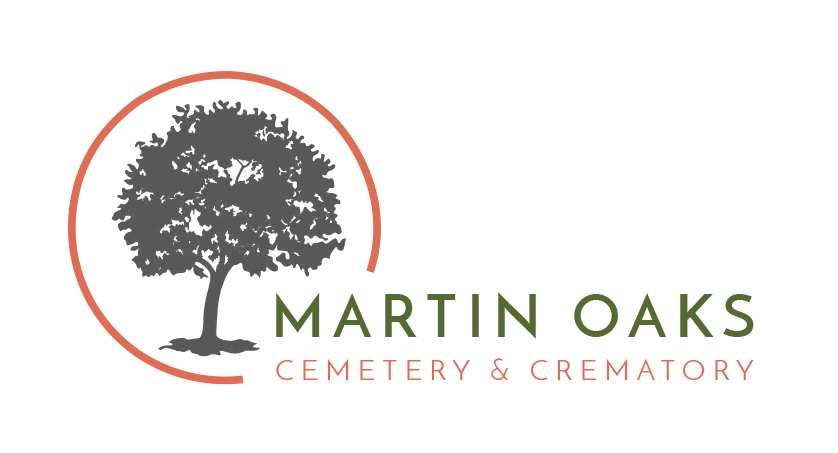What Happens to a Body After Death?
Most people have wondered about it—but very few talk about it.
What actually happens to the body after death?
Whether you’re preparing for the future or navigating a recent loss, knowing the practical steps that occur after someone dies can bring peace of mind during a painful time. At Martin Oaks Cemetery & Crematory, our philosophy is grounded in transparency, dignity, and service. We believe families have a right to understand every part of the process—not just what it costs, but what it means.
Below is a compassionate, step-by-step explanation of what happens to a body after death, from the moment of passing to the final act of disposition.
1. Pronouncement of Death
The process begins with a formal pronouncement of death, typically by a licensed medical professional. This may happen:
In a hospital, hospice, or nursing facility
At home under hospice care
At the scene of an unexpected or sudden death
This step is critical: it legally confirms that death has occurred and initiates the chain of custody and care. If the death is unexpected, law enforcement or the medical examiner may be involved, especially if an autopsy is needed.
Why this matters:
Proper pronouncement ensures legal documentation can begin, and it provides clarity for families during what may be a chaotic or emotionally charged moment.
2. Transportation of the Body
Once death is confirmed, the body is transferred to a funeral home, crematory, or mortuary care center. At Martin Oaks, our licensed funeral director partners provide 24/7 transport services throughout the Dallas–Fort Worth area and beyond.
The compassionate trained transportation team handles the transfer discreetly and respectfully, using specialized equipment and vehicles designed for this purpose. If the family has already made arrangements with Martin Oaks and our licensed funeral director partners, we coordinate directly with the facility where the death occurred. If not, families can contact us anytime, day or night, and we will respond promptly.
Why this matters:
Families often don’t know who to call first. Having a trusted provider in place or knowing where to turn makes a difficult moment just a little easier.
3. Secure Care and Identification
After transportation, the body is received into a secure, temperature-controlled holding facility. This is where the individual will remain until all necessary documentation is completed and final arrangements are carried out.
At this stage, we also verify identification through a multi-step process that includes:
Physical identification
Chain-of-custody documentation
Internal tracking protocols to ensure dignity and accuracy
In cases of cremation, Texas law requires a 48-hour waiting period from the time of death before cremation can occur, unless a waiver is issued.
Why this matters:
Every person deserves to be treated with care and accountability. Our protocols protect the integrity of the process and offer peace of mind to families.
4. Legal Documentation and Authorization
Behind the scenes, work begins on obtaining the required paperwork and legal authorizations. These may include:
Filing the death certificate with the county
Obtaining the cremation authorization from the next of kin
Securing any medical examiner or coroner releases, if needed
Coordinating with the family’s clergy, veterans services, or other third parties if applicable
Families are not expected to handle this alone. At Martin Oaks, our funeral director partners take care of every detail and guide you through any forms you need to complete.
Why this matters:
These documents not only fulfill legal obligations—they’re also essential for managing a person’s estate, accessing insurance, and creating a permanent record of their life and death.
5. Preparation for Disposition
The next step depends on the family’s wishes:
For burial, the body may be embalmed and cosmetically prepared for viewing, according to cultural, personal preference, or religious tradition.
For cremation, embalming is not required unless a public viewing is requested beforehand.
In some cases, families may request to witness the cremation or hold a private family goodbye.
At Martin Oaks, we offer on-site cremation at our state-licensed crematory, which provides families an added layer of trust and transparency.
Other common preparations include:
Removal of medical implants (such as pacemakers, which can be hazardous in a crematory)
Dressing the individual in garments provided by the family or our team
Placing personal items with the deceased, if desired (and permitted with cremation)
Why this matters:
Even in death, how a person is treated reflects their dignity. These steps help make that care tangible.
6. Final Disposition: Cremation, Burial, or Alternative Options
Once paperwork is completed and preparations are made, the final step—disposition—takes place.
Common options include:
Cremation: Performed in our on-site facility, after which the cremated remains (ashes) are returned to the family in a chosen urn or temporary container.
Traditional Burial: In a cemetery plot, mausoleum, or family-owned space.
Green Burial: A natural interment without embalming or vaults.
Donation to Science: In cases where the deceased registered with a program or where the family consents.
Families may also choose to memorialize their loved one in creative ways: ash scattering ceremonies, tree-planting rituals, keepsake jewelry, or customized memorial services.
Why this matters:
Every family—and every life—is different. Honoring a loved one’s final wishes, beliefs, or personality can be a healing part of the grieving process.
Final Thoughts: Compassion + Clarity = Comfort
Death is one of life’s most intimate and inevitable experiences. While no two journeys are the same, understanding what happens after death can bring peace to families facing one of life’s most difficult transitions.
At Martin Oaks Cemetery & Crematory, we are not just in the business of services—we are in the business of care. If you have questions—whether for yourself, a loved one, or just out of curiosity—we’re here to talk. There’s never a wrong time to ask.
📞 Available 24/7 | (469) 605-7215
📍 Serving families throughout Dallas–Fort Worth and North Texas
#DeathEducation #EndOfLifePlanning #MartinOaksExplains #CremationWithDignity #TransparentCare
